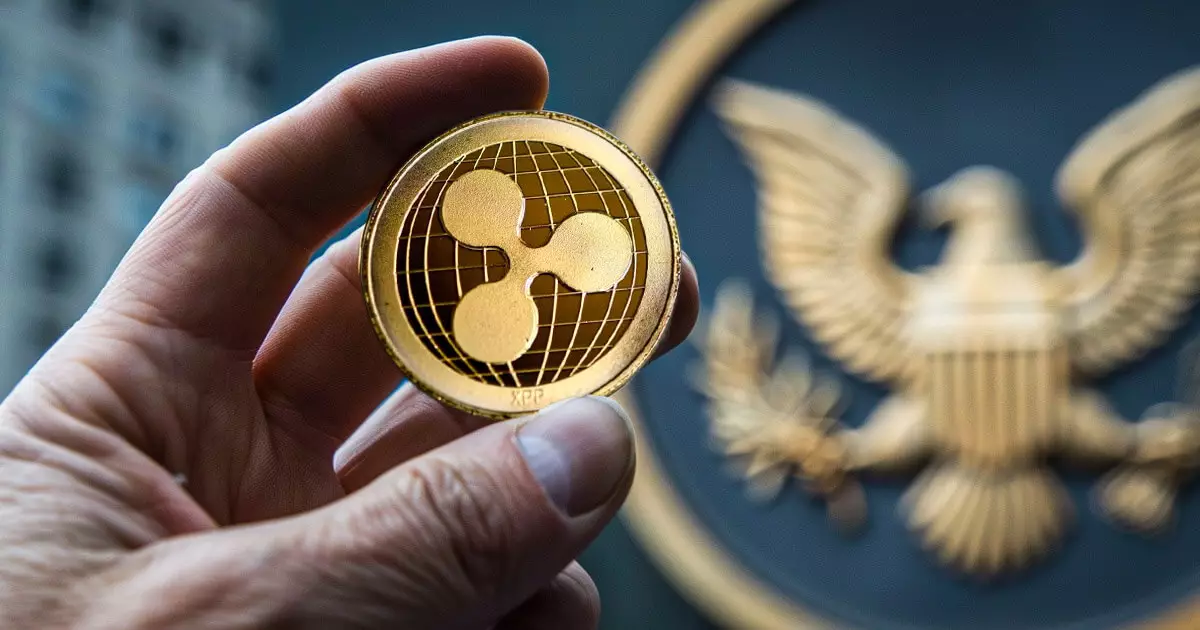In the complex landscape of cryptocurrency regulation, the legal battle between Ripple Labs and the U.S. Securities and Exchange Commission (SEC) has become a focal point for industry stakeholders. As of October 10, 2023, Ripple has officially submitted a cross-appeal to the Second Circuit Court of Appeals, a strategic move in response to the SEC’s recent appeal. This ongoing litigation raises pivotal questions about what constitutes a security in the rapidly evolving crypto market, making it an essential case to follow for investors, developers, and regulators alike.
The genesis of this contentious legal dispute traces back to December 2020, when the SEC accused Ripple of unlawfully issuing unregistered securities amounting to $1.3 billion via its cryptocurrency, XRP. This claim ignited a firestorm of controversy within the crypto community, highlighting the regulatory ambiguity surrounding digital assets. For a market already laden with uncertainties, the SEC’s aggressive posturing only exacerbated the prevailing sense of confusion, leaving many industry participants unsure of permissible activities.
In July 2023, a landmark decision by U.S. District Court Judge Analisa Torres provided a glimmer of hope for Ripple. The court acknowledged that while institutional sales of XRP violated securities laws, the sales made to retail investors did not meet the criteria for security transactions. This differentiation raised eyebrows, as it suggested a nuanced understanding of what can be classified as a security in the realm of digital currencies. However, the judge’s ruling also led to significant consequences, including a penalization against Ripple amounting to $125 million—far lighter than the SEC’s initial demand for nearly $2 billion.
Ripple’s decision to file a cross-appeal is significant for several reasons. Firstly, it indicates a desire to clarify and potentially challenge some of the court’s findings—particularly the ruling regarding institutional sales being classified as securities. Ripple’s chief legal officer, Stuart Alderoty, emphasized the intent behind this appeal: to ensure that every avenue is explored in the pursuit of justice and clarity. This endeavor underscores the broader frustration with the regulatory landscape, where companies often find themselves at the mercy of ambiguous laws and inconsistent interpretations by regulators.
Moreover, Ripple CEO Brad Garlinghouse’s commentary paints a broader picture of the landscape, accusing the SEC of using regulation as a form of enforcement rather than clear guidance. This sentiment is shared by many crypto advocates who argue that the current regulatory environment stifles innovation and hampers the overall development of the U.S. cryptocurrency market. Garlinghouse’s assertion that the SEC is primarily focused on creating chaos rather than providing clarity underscores the rift between regulators and the industries they oversee.
As both Ripple and the SEC have filed their appeals, the two cases will be combined, a move that suggests an extended duration of legal deliberations. This fusion of appeals entails a prolonged uncertainty for Ripple and the broader cryptocurrency ecosystem. Investors and stakeholders are left anxiously awaiting the outcome, as the implications could set significant precedents for the classification of digital assets going forward.
The ripple effects (no pun intended) of this legal battle are likely to resonate through both the regulatory landscape and market sentiment. If Ripple emerges victorious, it may pave the way for more lenient regulations concerning digital asset sales, heralding a new chapter for innovation and investment in the cryptocurrency space. Conversely, a decision favoring the SEC could deter companies from entering the U.S. market, stifling potential growth and advancement in this burgeoning industry.
Ultimately, the ongoing legal tussle between Ripple and the SEC is more than just a court battle; it embodies the broader struggle for clarity and fairness in the cryptocurrency industry. As the case continues to unfold, the implications of these decisions will likely have far-reaching effects, influencing not only Ripple’s future but also the regulatory framework enveloping cryptocurrencies in general. Stakeholders across the spectrum are urged to stay informed and engaged, as the outcome will undoubtedly carve pathways for the future of digital currencies in America and beyond.















